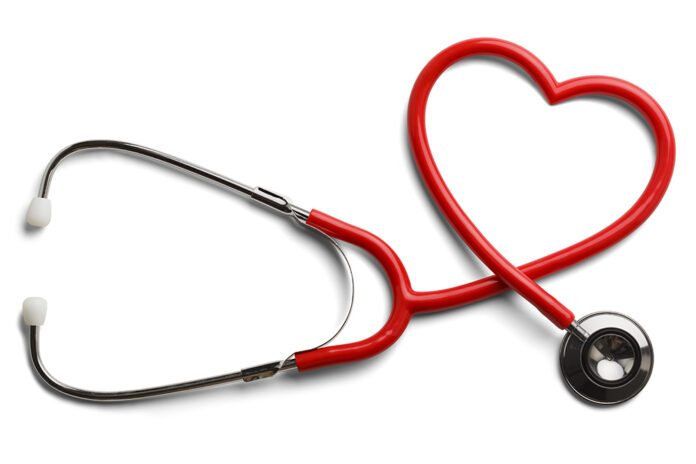By Andrew H. Jones
Community Relations Coordinator
Sun Life Family Health Center
As parents we never hesitate to schedule regular routine checkups for our children, but as adults we often times put aside our own health needs, and too often, we only see a doctor when we are sick.
People are changing their ways and are becoming more conscious about their health with improvements in diet, exercise and regular health check-ups. A routine and regular health check-up is a detailed test of your body, which should be done annually to monitor your health, reduce your risk of getting sick and detect any potentially life-threatening health conditions and/or hidden disease in your body and lower its effect with early treatment, or best-case scenario prevent it. Routine health checkups have many advantages as it will increase your lifespan by getting the right health services, screening and treatments your body requires.
Importance of Routine Health Check-Ups
Many serious health problems do not have any symptoms but can be found during a routine health check-up. Therefore important to have health checkups often. Any serious illness found in its early stage is much easier to cure. Early detection also enhances chances of survival.
Without routine health check-ups, you cannot regulate some health problems such as diabetes, hypertension, cholesterol, etc. Having a regular health check-up can improve your quality of life and help you avoid a serious problem such as cancer, osteoporosis, heart diseases, etc.
Routine check-ups for women such as diabetes, high blood pressure, cervical screenings and a breast exam will help to detect the signs of diseases at most treatable stages.
A regular scheduled check-up is also a good time to get up-to-date information on new medical technologies that are available.
A routine health exam helps to maintain and keep one’s medical history up to date. A clear and complete medical report can help to detect hereditary and early health problems.
Regular checkups help to strengthen the awareness of medical problems and encourage you to act on signs and symptoms to avoid potential health problems.
According to research, people with a poor diet, who use tobacco, that misuse/overuse alcohol, and/or have a lack of physical activity are more prone to death. Some of these deaths could be preventable with regular routine medical check-ups.
Other than these benefits, a regular health check-up gives an opportunity to talk with your doctor about healthy lifestyle choices. You can also review any immunizations that may be due, or learn about new optional vaccines that may not even be on your radar. During this time, you may also discuss emotional problems like depression and stress. These health checkups help the patient to reduce risks of major illness slipping through the cracks and enable you to worry less about any potential risks.
Sun Life Family Health Center welcomes you to learn more about the healthcare services we offer. Sun Life offers continuous and comprehensive healthcare to individuals and the entire family. In addition to providing care when you are ill, we will also help you achieve a healthy lifestyle and work with you to help prevent future illness.
ROUTINE CHECK-UPS CALENDAR
To help fill up your future medical calendar, these are the recommended ages for adult screenings and vaccines. It is important to become familiar with these lifelong milestones and coordinate a routine yearly schedule to maintain your overall health and wellness.
20 – The age when the American Cancer Society (ACS) recommends beginning annual skin cancer screenings.
21–29 – The age when women should begin getting a cervical screening every three years, according to the ACS.
30–65 – The age when women should begin getting a cervical screening combined with an HPV test every five years, according to the ACS.
50 – The age when men should begin getting prostate screenings, according to the ACS. Also the age when men and women should schedule their first colonoscopy.
60 – The age when men and women should get the shingles vaccine, according to the CDC, which recommends getting the vaccine regardless of whether you recall having had chickenpox.
65 – The age when men and women should receive the pneumococcal vaccine, according to the CDC. In addition, the age when women should get a bone density scan.
70 – The age when men should get a bone-density scan.
TIP OF THE MONTH
CREATE A MEDICAL ROUTINE
Create a Medical Routine for yourself and your family. Monitor your health, reduce your risk of getting sick and detect any potentially life-threatening health conditions with routine check-ups.
#OneSmallChange















![Elena Trails releases home renderings An image of one of 56 elevation renderings submitted to Maricopa's planning department for the Elena Trails subdivison. The developer plans to construct 14 different floor plans, with four elevation styles per plan. [City of Maricopa]](https://www.inmaricopa.com/wp-content/uploads/2024/04/city-041724-elena-trails-rendering-100x70.jpg)

![Affordable apartments planned near ‘Restaurant Row’ A blue square highlights the area of the proposed affordable housing development and "Restaurant Row" sitting south of city hall and the Maricopa Police Department. Preliminary architectural drawings were not yet available. [City of Maricopa]](https://www.inmaricopa.com/wp-content/uploads/2024/04/041724-affordable-housing-project-restaurant-row-100x70.jpg)